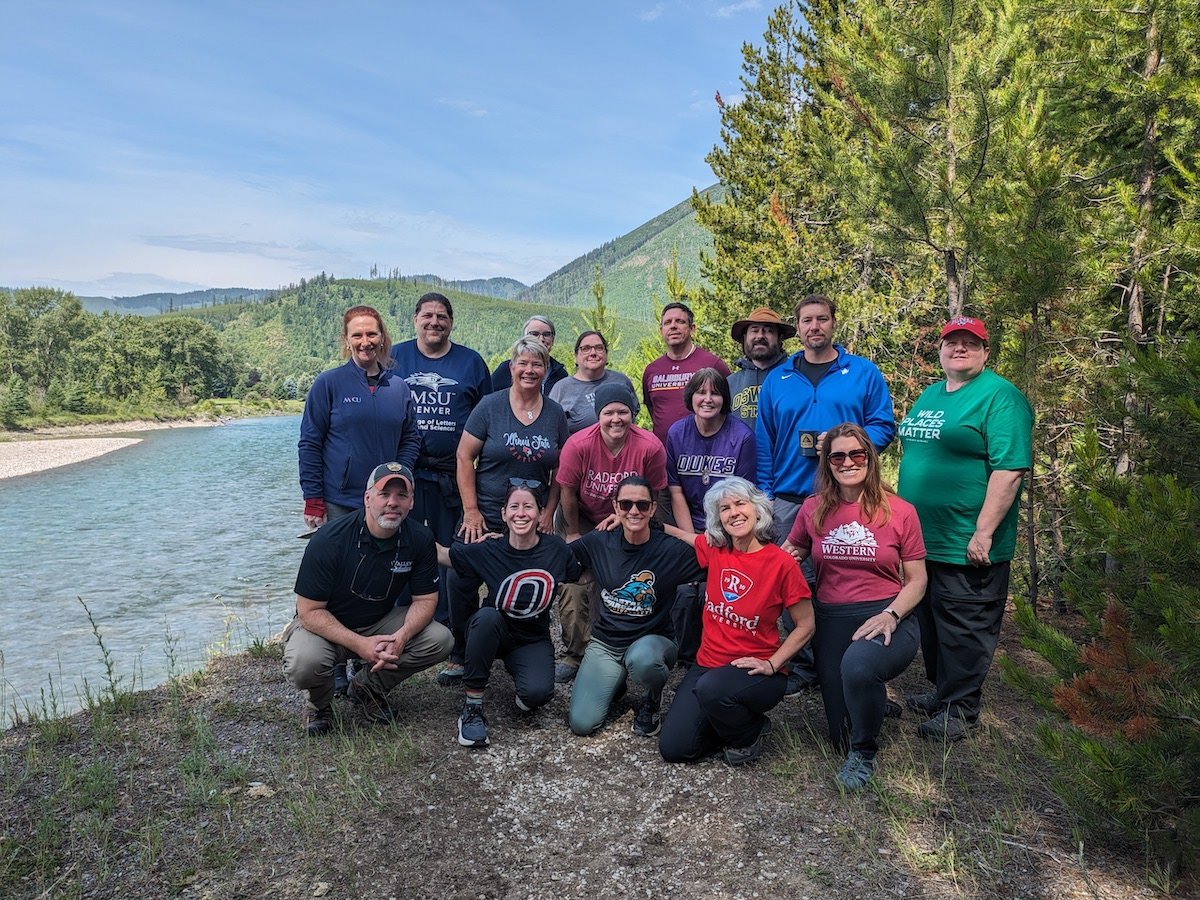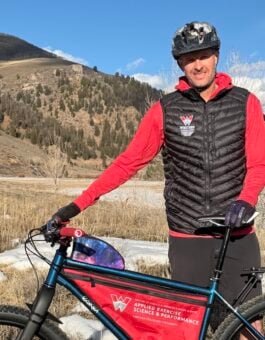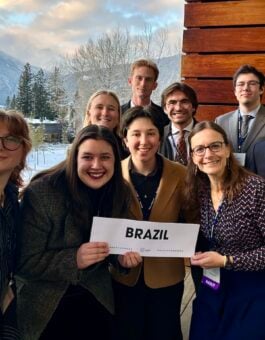While Dr. Brooke Zanetell was sitting around a campfire at the Stewardship of Public Lands seminar in Glacier National Park earlier this summer, she realized something: Western has a unique role to play in the conversation about America’s public lands.
Zanetell, an assistant professor of Public Land Management in Western’s Clark Family School of Environment & Sustainability, spent a week in June with 14 other faculty members and administrators representing 13 universities from across the country. But none of her peers had the same connection to America’s public lands as she did, coming from Gunnison.
“Most of the people in the cohort were passionate about nature and public lands, because they were drawn to this experience,” Zanetell said. “But what I found is that I was the only person who really had much of an understanding about what public lands are.”
As the only participant from the Intermountain West, where a majority of the nation’s public lands are located, Zanetell joined a cohort convened by the American Association of State Colleges and Universities (AASCU) to explore the many issues related to public lands and, hopefully, start constructive conversations about the environment on campus.
The AASCU’s American Democracy Project has offered the Stewardship of Public Lands program since 2004, because the country’s network of public lands is an experiment in shared management. Activities during the week included guided hikes through Glacier’s stunning landscapes, storytelling by Blackfeet and Kootenai-Salish elders, and presentations by park scientists, conservationists, and federal land managers.
But while she was there, Zanetell found herself drawing on her years of teaching and field experience to help members of her cohort gain a deeper understanding of everything from endangered species protections to the land-transfer debate that had recently unfolded on the national stage.
The program also provided Zanetell with an opportunity to grow her professional skills and network, and she walked away with new ideas for her classes, expanded professional networks, and potential collaborations. As the only participant who studies and teaches public land management, Zanetell saw how Western could provide future experiential learning opportunities for students and faculty from other universities.
“It served as an a-ha moment to realize that Western’s location and my portfolio of Public Lands Management lectures, field trips, and partners is of great value to those who want to learn about public lands but live in portions of our nation where access to and understanding of them is very limited,” she said.
Perhaps the most unexpected outcome of the seminar was an invitation from Pamela Martin, a professor at Coastal Carolina University, to join a national team working on policy related to the Rights of Nature, which is a growing movement to legally recognize the rights of rivers, mountains, and ecosystems.
“As Pam became more familiar with my background and interests in water, she saw the potential for me to contribute to their work in Colorado on establishing personhood rights for rivers,” Zanetell said. “It aligns perfectly with my personal values and my professional interests, and I am stoked about this.”
Zanetell’s participation was supported by Western’s Professional Activity Fund and the Environment and Sustainability Department’s Professional Development Fund.
Lead the Change You Want to See
Join a community of bold thinkers and passionate problem-solvers. In the Master’s in Environmental Management program, you’ll dive into real-world research, work side-by-side with faculty and peers, and develop the skills to create lasting environmental impact.


